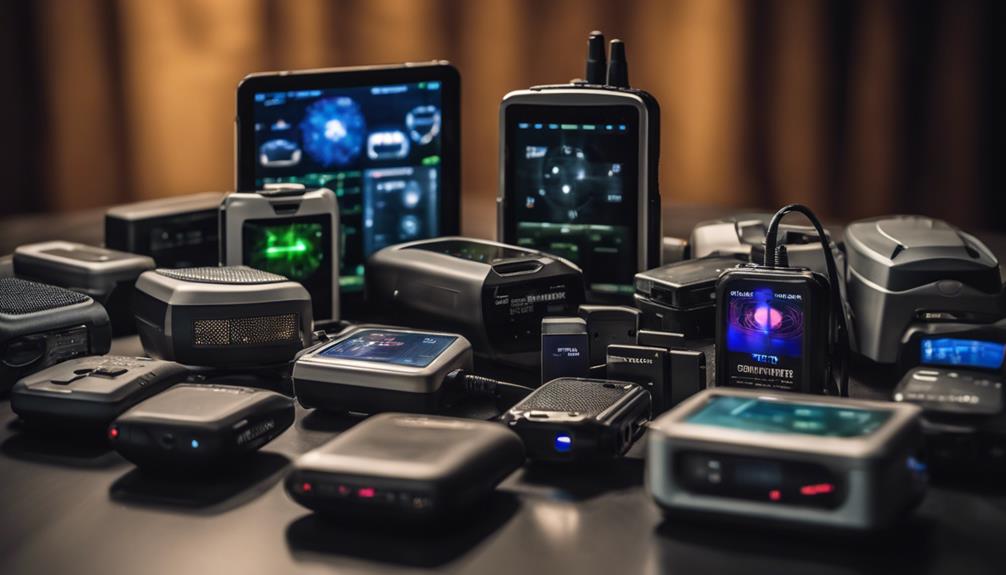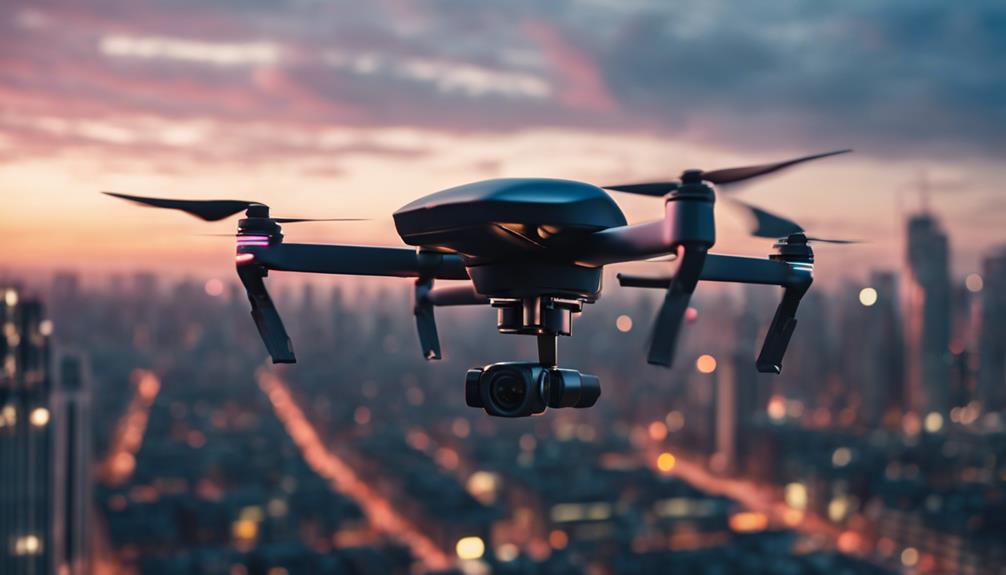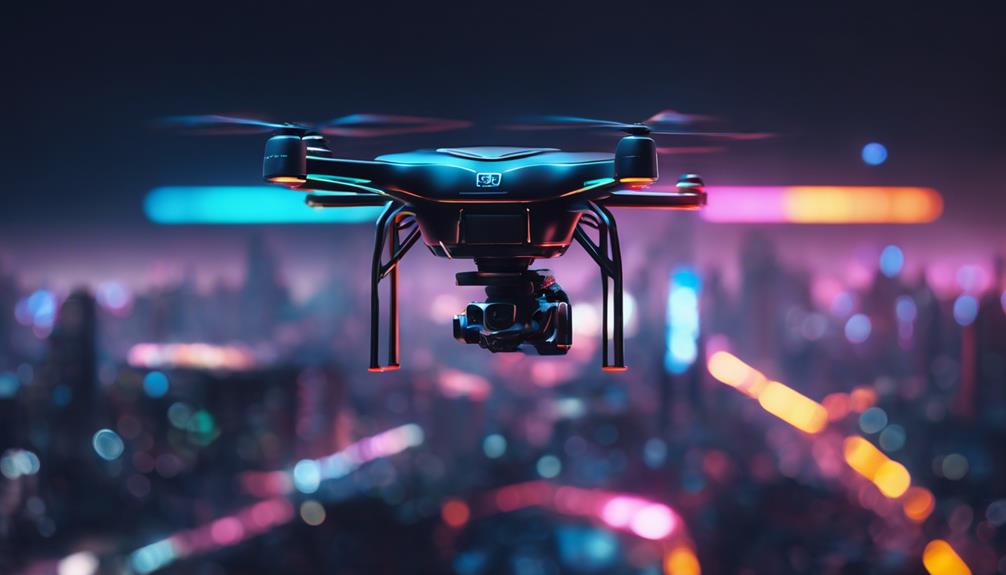
Smart TVs have revolutionized the way we consume media, offering an array of features that connect us to the internet and enhance our viewing experience. However, with the convenience of technology comes significant risks, particularly regarding privacy. The potential for smart TVs to act as spy cameras raises alarms as they may inadvertently expose users to surveillance and unauthorized access. This article aims to explore the risks associated with smart TV spy cameras, how they can compromise your privacy, and practical steps you can take to secure your digital living space.
Understanding the Risks of Smart TV Spy Cameras Today
As smart TVs become more sophisticated, they often include built-in cameras and microphones for features like video calling and voice recognition. However, these functionalities can be exploited by hackers or malicious software to invade your privacy. Reports indicate that unsecured connections and outdated software can make these devices prime targets for cybercriminals, emphasizing the need for users to understand the implications of their smart TV’s capabilities. The potential for unauthorized surveillance can create a sense of vulnerability in one’s own home, where individuals expect to feel safe and secure.
Moreover, the rise of smart home technology means that our devices are increasingly interconnected, creating larger attack surfaces for malicious actors. A compromised smart TV can serve as a gateway for hackers to access other connected devices, such as smartphones and home automation systems. As people integrate these technologies into their daily lives without adequate security measures, the risks associated with spy capabilities in smart TVs grow exponentially. This necessitates a critical evaluation of how we engage with our devices and the importance of safeguarding our privacy.
How Smart TVs Can Compromise Your Privacy at Home
Smart TVs are designed to learn user preferences and behavior, often collecting vast amounts of data to personalize content. However, this data collection can extend beyond benign metrics like viewing habits. Many manufacturers implement features that record audio and video inputs, raising serious questions about the extent of surveillance in our living spaces. Users may unknowingly grant permissions that allow these devices to capture intimate moments or conversations, which can be misused if accessed by unauthorized individuals.
Additionally, the data collected by smart TVs can be sold to third-party advertisers, further eroding privacy. While often presented as a benefit for tailored advertising, this practice can lead to sensitive information being shared without consent. The reality is that the more interconnected our lives become with smart technology, the higher the chances that our privacy will be compromised. Recognizing this risk is the first step in taking proactive measures to protect personal information from being exploited.
Recognizing the Signs of a Spy Camera in Your TV
Identifying whether your smart TV contains a spy camera can be challenging, especially since many features are advertised as benefits. However, there are some telltale signs that you can look for. First, check for any physical indicators, such as a small lens located on the bezel of the TV. Some models may have a camera that can be hidden, so pay attention to product specifications and user manuals that indicate the presence of a camera. Additionally, be wary of any unusual behaviors, such as unexpected software updates or the TV activating voice controls without prompt, which could suggest external manipulation.
Another crucial element is monitoring your network’s activity. If your smart TV is connected to the internet, you can use network monitoring tools to check for unusual data transmission. Look for any unknown devices connected to your network or spikes in data usage that could indicate that your TV is communicating with unauthorized servers. Awareness and vigilance in recognizing these signs can empower users to take action before their privacy is compromised.
Protecting Yourself: Tips to Secure Your Smart TV
Securing your smart TV should be a priority for anyone looking to safeguard their privacy. One of the most effective measures is to change the default passwords and usernames that come with the device. Many users overlook this step, leaving their devices vulnerable to unauthorized access. Create strong, unique passwords that incorporate a mix of letters, numbers, and symbols to enhance security.
Furthermore, consider disabling any features that you do not use, such as voice recognition or camera access, to minimize potential vulnerabilities. Regularly review privacy settings and permissions within the smart TV’s menu, ensuring that data collection is limited to what you are comfortable with. Utilizing a virtual private network (VPN) can also add an additional layer of security, encrypting your internet traffic and making it more difficult for any intrusions to occur.
The Technology Behind Smart TV Spy Cameras Explained
The technology that enables smart TVs to function as spy cameras involves sophisticated hardware and software. Most modern smart TVs come equipped with advanced sensors, microphones, and cameras that enable interactive features. However, these same components can be manipulated by cybercriminals who exploit vulnerabilities in the system to gain access. Data streams can be intercepted, and unauthorized remote access can be achieved through unsecured internet connections.
The software used in smart TVs often lacks robust security measures, making them susceptible to malware and hacking attempts. Users may unknowingly install malicious applications disguised as legitimate software, which can then exploit the TV’s capabilities. Understanding the underlying technology can help users appreciate the importance of selecting devices from reputable manufacturers and ensuring that security is a priority from the moment of purchase.
Legal Implications of Unauthorized Surveillance Devices
The use of unauthorized surveillance devices, including spy cameras integrated into smart TVs, can have serious legal ramifications. In many jurisdictions, recording someone without their consent can lead to significant penalties, including fines and imprisonment. Laws regarding privacy and surveillance vary by region, but the general consensus is that individuals have the right to privacy in their homes. Unauthorized access to a smart TV, whether for spying or data theft, can constitute a violation of both criminal and civil laws.
Moreover, manufacturers are increasingly held accountable for the security of their devices. Cases involving data breaches and unauthorized surveillance can lead to lawsuits and regulatory action against companies that fail to protect their consumers. As awareness of these issues grows, the legal landscape surrounding privacy violations will likely continue to evolve, emphasizing the importance of adhering to legal standards and ethical practices in technology usage.
Enhancing Your Home Security Against Spy Technology
To enhance security against spy technology, it is essential to adopt a holistic approach that encompasses all connected devices in your home. Start by conducting a thorough audit of all internet-connected devices, ensuring that they are equipped with the latest security features. Strong passwords, regular updates, and secure network configurations should be standard practices for enhancing your digital safety.
Additionally, consider employing security solutions such as network firewalls and intrusion detection systems to bolster your home security. These tools provide an added layer of protection against potential intruders, helping to monitor and mitigate suspicious activity. Being proactive in securing your digital environment will not only safeguard your smart TV but also protect your entire home network from potential threats.
Choosing Safe Smart TVs: What to Look For
When choosing a smart TV, it is crucial to prioritize safety and security features. Look for brands that emphasize privacy protection and transparently communicate their data collection practices. Consider models that offer the option to disable cameras and microphones, allowing you to maintain control over your privacy. Additionally, check for comprehensive customer reviews that discuss security concerns to ensure that your chosen device is reputable.
Another important factor is the support for regular software updates. TVs that receive consistent updates are more likely to address vulnerabilities and enhance security over time. Research models that have a good history of customer support and a commitment to ongoing maintenance. By making informed decisions, consumers can select smart TVs that provide entertainment without compromising their privacy.
The Importance of Regular Software Updates for Security
Regular software updates are critical for maintaining the security of smart TVs and other connected devices. Manufacturers frequently release patches and updates to address vulnerabilities discovered after the product’s initial release. These updates can significantly reduce the risk of unauthorized access and exploitation of the device, highlighting the importance of keeping your software current.
Failing to regularly update your smart TV can leave you exposed to cyber threats and vulnerabilities. Many users overlook this aspect, often assuming that their devices are secure once they are set up. To mitigate potential risks, make a habit of checking for software updates monthly and enabling automatic updates whenever possible. Staying ahead of security threats will help ensure a safer digital experience.
Staying Informed: The Future of Smart TV Privacy Concerns
As technology continues to advance, privacy concerns related to smart TVs are expected to escalate. Innovations in artificial intelligence and machine learning may enhance user experiences, but they also present new challenges regarding data privacy and security. The growing prevalence of smart TVs in households necessitates ongoing discussions about ethical practices surrounding surveillance and data collection by manufacturers.
Consumers can empower themselves by staying informed about emerging threats and privacy concerns. Engaging in dialogue about the implications of smart technology, participating in community forums, and advocating for stronger privacy regulations can help shape the future landscape of smart TV technology. Being proactive and informed will not only protect individual privacy but also foster a more secure digital environment for everyone.
As smart TVs continue to evolve, understanding the potential risks associated with their use is essential for protecting your privacy. By recognizing the signs of potential spying, employing security measures, and staying informed about technological advancements, you can enjoy the benefits of smart technology without compromising your safety. The responsibility lies with consumers to take proactive steps towards securing their devices while advocating for enhanced privacy protections in the industry. Ultimately, a well-informed user is a safer user.





